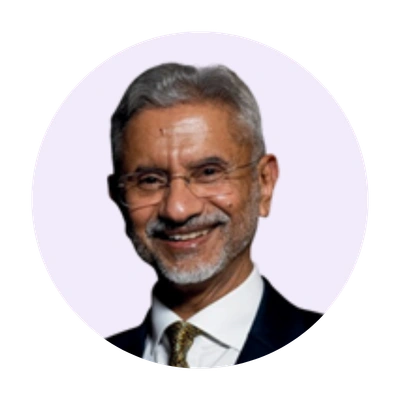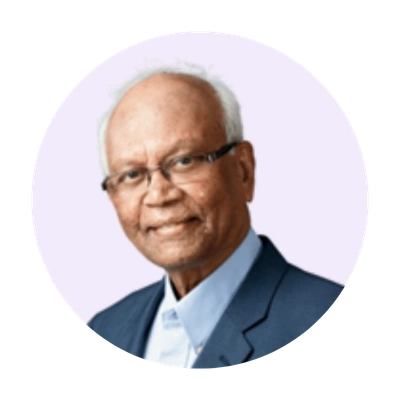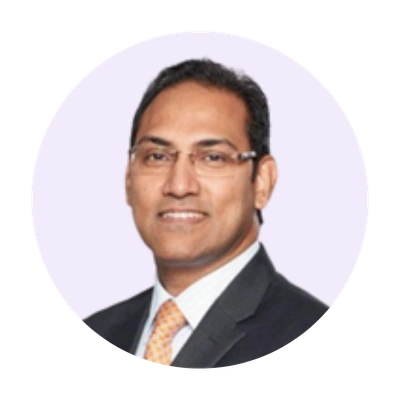Asia Economic Dialogue (AED) 2026
The Asia Economic Dialogue (AED) is a premier international geoeconomic conference organized by the Ministry of External Affairs (MEA), Government of India, in collaboration with the Pune International Centre (PIC). As one of the three prominent Track 1.5 dialogues supported by the MEA, the AED has emerged as a crucial platform for fostering meaningful discussions on pressing global and regional economic challenges.
The 7th edition of the Asia Economic Dialogue, scheduled to take place in Pune from February 26 to February 28, 2026, will revolve around the theme “Geoeconomics Beyond Globalisation: Tariffs, Technologies and Strategic Alignments.” The conference will explore pivotal geoeconomic topics, including Artificial Intelligence (AI), Defence Manufacturing, Semiconductors, the Geoeconomics of the Indian Ocean, World Trade Systems, High Technology, and Public Health.
Over the years, AED has been instrumental in addressing critical economic issues, with its previous editions featuring distinguished participants such as ministers, diplomats, and thought leaders from Asia, Europe, and the Americas.
AED 2026 will bring together a diverse group of academicians, policymakers, and industry experts from countries such as Singapore, South Korea, Kenya, Sri Lanka, and other nations. Ministerial participation will further amplify the discourse, facilitating an exchange of transformative ideas and strategic insights.
This year’s dialogue promises to address the complexities of economic fragmentation and identify actionable pathways for resilience and resurgence. By fostering nuanced discussions on emerging challenges and opportunities, AED 2026 aims to empower nations, industries, and individuals to navigate the evolving geoeconomic landscape.
Through its continued engagement with key stakeholders, the Asia Economic Dialogue remains committed to strengthening regional and global economic cooperation, positioning Asia as a pivotal force in shaping the future of the global economy.
⏳ The countdown begins!
— Pune Int Centre (@PuneIntCentre) November 20, 2025
🌏 #AsiaEconomicDialogue returns to #Pune on 26–28 February 2026.
This year’s theme — #Geoeconomics Beyond Globalisation — explores #tariffs, #technologies, and strategic alignments.
Stay tuned for more. #AED2026 @MEAIndia @rameshmashelkar @GBambawale pic.twitter.com/pzaNKmLwd4
🔁 It’s happening again!
— Pune Int Centre (@PuneIntCentre) December 6, 2025
🌏 #AsiaEconomicDialogue returns to #Pune from 26–28 February 2026.
Dive into this year’s theme — Geoeconomics Beyond Globalisation — as we explore tariffs, technologies, and global strategic realignments. 🌐 @rameshmashelkar @GBambawale @MEAIndia pic.twitter.com/ojdCXlPRap
Speakers (Coming Soon)

Hon. Dr. S. JaishankarExternal Affairs Minister, Government of India
Dr. S Jaishankar began education from the Air Force School and graduated in Chemistry from St. Stephen’s College at the University of Delhi. After that, he pursued M.A. in Political
Science and M.Phil., and PhD in International Relations from Jawaharlal Nehru University. A former diplomat who served as Foreign Secretary, S. Jaishankar was inducted into PM Modi’s cabinet as a Union Minister of External affairs in 2019. Prior to diving into the Indian political sphere, he served as Indian Ambassador to the United States, China, and the Czech Republic. In addition to this eminent portfolio, he also served as High Commissioner to Singapore (2007–09). He played a vital role in negotiating the Indo-US civilian nuclear agreement and played a pivotal role in reinforcing economic, trade, and cultural relations between India and China. Jaishankar speaks Russian, English, Tamil, Hindi, conversational Japanese, and some Hungarian. He was awarded the Padma Shri in 2019.

Dr. Raghunath A. MashelkarFRS, President, Pune International Centre
Dr. Raghunath Mashelkar is India’s foremost leader in research and innovation, having held prestigious roles such as Director General of the Council of Scientific and Industrial Research (CSIR), President of the Indian National Science Academy, and Chairman of the National Innovation Foundation.
Under his leadership, CSIR underwent a remarkable transformation in the 1990s, and it is recognised as one of the top ten achievements in Indian science and technology in the 20th century. Dr. Mashelkar holds 54 honorary doctorates, the most by any engineering scientist in India. He is one of only three Indian engineering scientists honoured with the prestigious Fellow of the Royal Society (FRS).
His pioneering efforts, including his battle to protect India’s traditional knowledge from wrongful patents, have earned him global recognition. Dr. Mashelkar has served on numerous government committees and boards, including the boards of Reliance, Tata Motors, and Hindustan Unilever. He has received India’s highest civilian awards, including the Padma Vibhushan.

Dinanath KholkarDirector, Pune International Centre
Presently the Director of Pune International Centre, Dinanath Kholkar (Dina) has had an illustrious global career of 34 years at Tata Consultancy Services (TCS), where he was part of the leadership team and managed a diverse set of business units. He was also the MD & CEO of TCS eServe, a subsidiary of TCS, recognized as a highly successful acquisition in the IT industry.
With years of experience in setting up, growing, and transforming IT businesses globally, he continues to mentor and guide CxOs and leaders. Post his corporate career, he has been an independent director and also a strategic advisor to IT and Tech companies. He contributes to the Pune region business ecosystem through his volunteering at MCCIA as its Chair for the IT/ITES Committee and as Chair for Industry relations at IEEE Pune section.
Dina serves as a Professor of Practice at COEP Tech University, helping its journey as part of the India Semiconductor Mission and India AI mission. At PIC, he has been the research track lead for science, technology, and national innovation ecosystem and has led initiatives on Water Security, Energy Efficiency, and Digital Public infrastructure. He is a Distinguished Alumnus of VJTI and has been appointed as Distinguished Professor of Practice by his alma mater.
Schedule (Coming Soon)
- 16:15 – 16:45 hrs Registration and Tea/Coffee i
- 16:45 – 16:50 hrs Welcome Remarks by Dinanath Kholkar i
- 16:50 – 16:55 hrs Short Video on Asia Economic Dialogue i
- 16:55 – 17:05 hrs Opening Remarks by Dr. Raghunath A. Mashelkar i
- 17:05 – 17:10 hrs Video message by Hon. Dr. S. Jaishankar i
- 17:10 – 18:00 hrs Panel Discussion: Geoeconomics Beyond Globalisation i
- 18:00 – 19:00 hrs Fireside Chat i
- 19:00 – 19:30 hrs Cultural Performance i
- 19:30 hrs Inaugural Dinner i
- 10:00 - 11:15 hrs Panel Discussion - Dual Intelligence i
- 11:15 - 12:00 hrs Fireside Chat with Dr. Baba Kalyani i
- 12.00 - 12:15 hrs Tea/Coffee Break i
- 12:15 - 13:30 hrs Panel Discussion - Connecting Public Health and Economic Development i
- 13:30 - 14:15 hrs Lunch i
- 14:15 - 15:30 hrs Panel Discussion - High Technology in Strategic Defence i
- 15:30 - 16:45 hrs Panel Discussion - Technology for Defence Manufacturing: Building Capabilities i
- 16:45 - 17:00 hrs Tea/Coffee Break i
- 17:00 - 18:15 hrs Panel Discussion - The India + Asia Chip Corridor: Supply Chain Resilience and Global Relevance i
- 10:00 - 11:15 hrs Panel Discussion - Global Trade System: Which Direction is it Headed? i
- 11:15 – 11:30 hrs Tea/Coffee Break i
- 11:30 – 12:45 hrs Panel Discussion - Maritime Geoeconomics in the Indian Ocean Region (IOR): Power, Partnerships, and Ports i
- 12:45 - 13:30 hrs Valedictory Address - Amb. (retd.) Nirupama Menon Rao i
- 13:30 hrs onwards Lunch i
About Pune
Pune is a city in the Maharashtra state of western India. Called the ‘Queen of the Deccan’, Pune is the cultural capital of Maharashtra. The city gained importance in the 17th century during the Maratha dynasty, when it served as the official capital. It was home to the Peshwas, who were the prime ministers of the Maratha Empire. After 1817, it was the seasonal capital of the British Bombay Presidency. Today, Pune is the headquarters of the Southern Command of the Indian army, with the National Defence Academy located nearby.
Referred to as the ‘Oxford and Cambridge of India’, the city is also a major educational and cultural centre, with more than 30 constituent and affiliated colleges, housing thousands of national and international students. Pune is one of the leading IT services centres, with the biggest IT park of India located at Hinjewadi.
Pune is surrounded by the spectacular Sahyadri range, which has many important forts of historical significance, such as Raigad, Pratapgad, and Torna.
The city is well linked to other parts of the country. The Pune Airport is approximately 15km from the city centre and is well connected with all the states of India and several international destinations.



